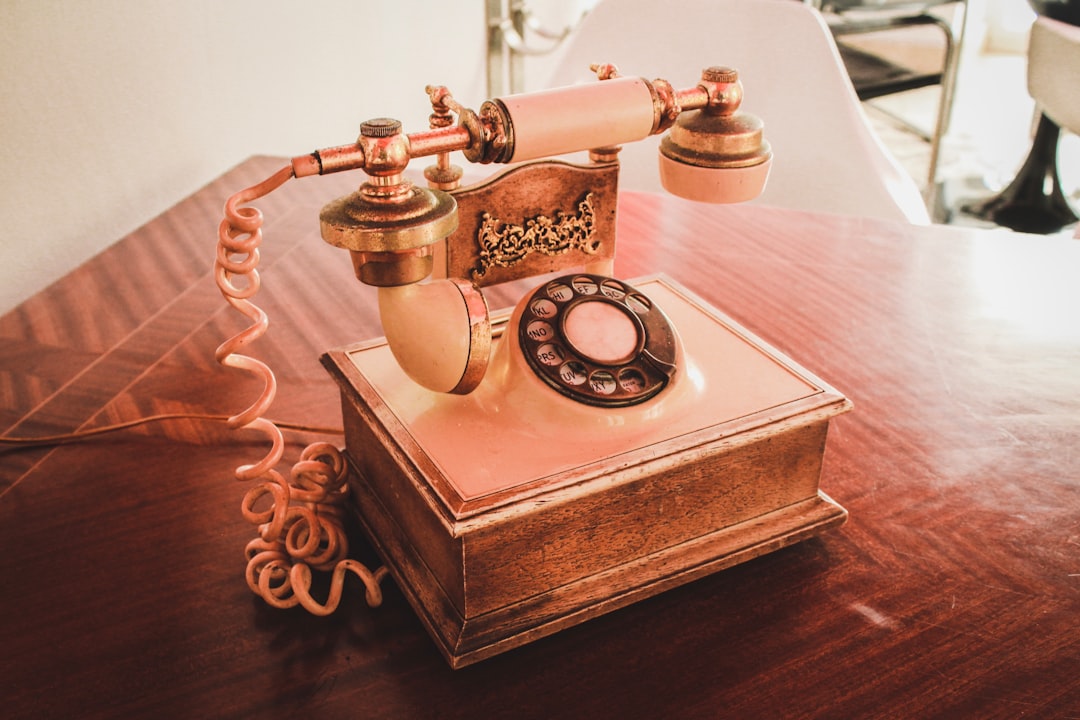To engage in effective and legal telemarketing with nonprofits in Atlanta, navigate Georgia's strict "Do Not Call" regulations by understanding consent requirements, respecting do-not-call lists (including those for lawyers, attorneys, and law firms), and adhering to guidelines from the Georgia Attorney General. Build partnerships with local nonprofits for tailored training on community insights, cultural nuances, and best practices while avoiding aggressive sales tactics. Ensure privacy, personalize interactions, and respect individual preferences regarding lawyer communications in Georgia.
“In Atlanta, navigating telemarketing within the nonprofit sector requires a nuanced understanding of legal guidelines and strategic engagement. This article serves as a comprehensive guide for businesses and individuals seeking to collaborate with local nonprofits for educational purposes, ensuring compliance with Do Not Call regulations in Georgia. By exploring topics such as legal perspectives, relationship-building strategies, and best practices, readers will discover effective approaches to connect with nonprofit organizations, do not call lawyers Georgia, and attorneys while promoting ethical telemarketing in the region.”
Understanding Nonprofit Telemarketing in Atlanta: A Legal Perspective

Understanding Nonprofit Telemarketing in Atlanta from a legal perspective is crucial. When engaging with local nonprofits for telemarketing education, it’s essential to know that Georgia laws strictly regulate unsolicited phone calls, often referred to as the “Do Not Call” regulations. These rules protect consumers from unwanted sales or marketing calls and apply even to well-intentioned initiatives by charitable organizations.
Nonprofits in Atlanta must adhere to specific guidelines when conducting telemarketing activities. This includes obtaining proper consent from callers, providing clear opt-out options to recipients, and ensuring their messages are accurate and not misleading. Engaging with local nonprofits for educational purposes should involve a deep understanding of these legal requirements, especially when involving phone outreach.
Why Engage with Local Nonprofits for Education?

Engaging with local nonprofits is a strategic move for those seeking telemarketing education in Atlanta. These organizations often have unique insights into community needs, ensuring that training programs are tailored to address specific challenges faced by local businesses and residents. By partnering with them, you gain access to a wealth of knowledge about the region’s cultural nuances, legal considerations, and market trends, which can significantly enhance your telemarketing skills.
Furthermore, many nonprofits have established networks and connections within the community, including potential customers, clients, or collaborators. Engaging with these groups allows for peer-to-peer learning, where you can exchange best practices and gain first-hand experiences. This approach is particularly beneficial when navigating the complex landscape of doing business in Georgia, especially when avoiding legal pitfalls by steering clear of lawyer, attorney, or law firm calls in Georgia.
Identifying Eligible Nonprofits: Avoiding the Do Not Call Lists

When engaging with local nonprofits for telemarketing education in Atlanta, it’s crucial to start by identifying eligible organizations. To ensure your efforts are effective and compliant, focus on nonprofits registered with the IRS as tax-exempt entities. Verify their status using tools provided by the IRS or state-specific databases, such as those in Georgia. This step is vital to avoid any legal complications that could arise from contacting unauthorized entities.
Additionally, be mindful of Do Not Call lists maintained by both state and federal authorities, including the “Do Not Call Lawyer Georgia” or similar listings for attorneys and law firms. Respecting these lists is essential to prevent unwanted legal repercussions. Ensure the nonprofits you engage with are not listed, and always obtain proper consent before initiating any outreach campaigns, adhering to the guidelines set by the Georgia Attorney General’s Office to remain on the right side of the law.
Building Relationships: Effective Communication Strategies

Building strong relationships is key to successful telemarketing efforts when engaging with local nonprofits in Atlanta. Effective communication strategies involve tailoring your approach to each organization’s unique needs and goals. Instead of treating them as potential clients, view these nonprofits as valuable partners in your educational mission. Begin by researching their programs, missions, and current challenges; this demonstrates respect and genuine interest.
When reaching out, avoid the common pitfalls of telemarketing. Refrain from using aggressive sales tactics or focusing solely on promoting your services. Instead, focus on listening actively, understanding their concerns, and offering tailored solutions that align with their vision. By fostering an atmosphere of collaboration, you can build trust and long-lasting partnerships, ensuring a more fruitful and ethical educational outreach campaign in Georgia.
Best Practices for Telemarketing Success in the Georgia Nonprofit Sector

To ensure telemarketing success in the Georgia nonprofit sector, it’s crucial to understand and adhere to best practices that respect privacy and avoid unwanted contacts. One key rule is to never call lawyers or law firms in Georgia under any circumstances, as doing so could lead to legal repercussions. The phrase “do not call lawyer Georgia,” “do not call attorneys Georgia,” and “do not call law firms Georgia” should be etched into your strategy. Nonprofits must obtain explicit consent before reaching out, focusing on phone numbers provided by potential supporters specifically for fundraising purposes.
Another vital practice is to personalize each interaction, demonstrating genuine interest in the donor’s well-being and their connection to the nonprofit’s mission. Clear communication about the organization’s goals and how donations will make a difference can foster meaningful relationships. Additionally, being mindful of call times—avoiding early mornings or late evenings—and respecting do-not-call lists ensures that efforts remain effective and welcomed by the Georgia community.






